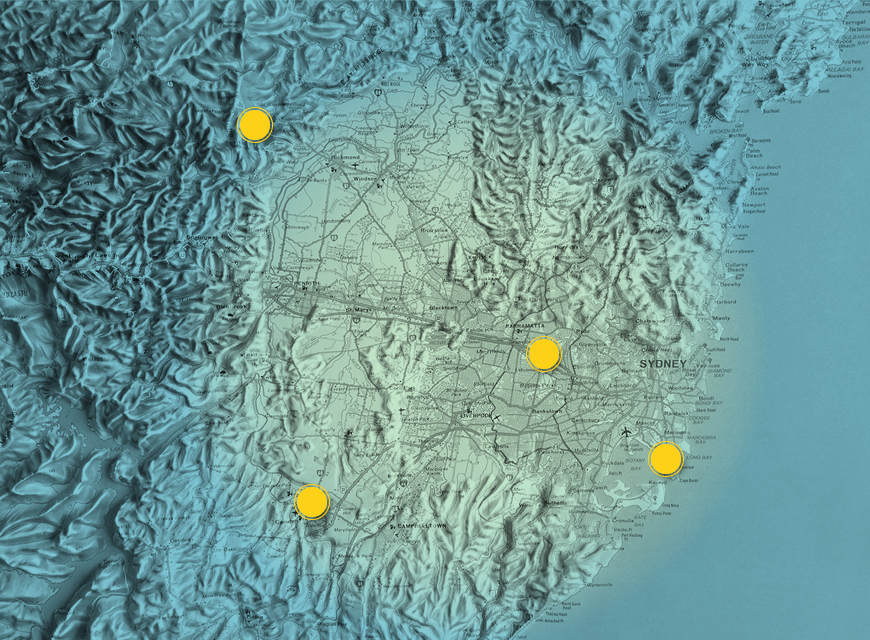Local food production in the Sydney basin provides many benefits and underpins the resilience of the city. Yet competing priorities for Sydney’s fertile farmland could threaten future supplies of fresh, local food.
By mapping Sydney’s current and future food production, we aim to create an evidence base to support effective policies and innovations, so that Sydney can be a thriving and resilient city that provides a future for food producers as well as its growing population.

Sydney’s Food Futures (2015-2016) is a collaborative research project being undertaken by the Institute for Sustainable Futures at the University of Technology Sydney, in conjunction with a number of government and industry partners (see About the project).
There are enormous benefits to growing fresh food in the Sydney basin – and, indeed, near any city. Perishable foods like Asian greens and eggs can be grown close to market, thereby reducing spoilage, supply chain waste and food miles, and buffering against fuel price shocks. Agriculture and food processing are labour-intensive, providing significant local job opportunities. In fact, the benefit of Sydney’s agriculture to the economy is estimated at upwards of $4.5 billion.
Loss of agriculture therefore presents serious risks to the resilience of the city, to the health of residents and the viability of farmers operations. For example, a disruption in the major transport routes into Sydney from a bushfire or fuel shortages could leave Sydney with only days worth of fresh produce.
This research finds that if we continue down the path we’re on, Sydney stands to lose over 90% of its current fresh vegetable production. Total food production could shrink by 60%, and the Sydney foodbowl’s capacity to feed its’ residents could drop from meeting 20% of food demand down to a mere 6%.
However the wide range of future food production scenarios developed in this research demonstrate that the path we’re on – urban sprawl – needn’t be set in stone: sustainable strategies and innovations that integrate food and other essential services could open up possibilities for increasing food production in the basin, while providing for 1.6 million new residents over the next 15 years, thereby balancing housing with food production, environmental protection and health.
Creating a resilient food future for Sydney means our strategic metropolitan planning need to value and better protect agriculture from urban sprawl. Farmers and agri-businesses need viable commercial conditions, a fair price for produce, land security and a social license to operate. The people of Sydney need access to affordable housing, jobs, infrastructure like transport and water and social services. But they equally need access to nutritious and affordable food, reversing the high rate of obesity and diabetes, and ‘food deserts’ (grocery dead zones) particularly prevalent in Western Sydney. Through increased awareness and accessibility, food consumers can also choose to support local food producers, increasing the resilience of Sydney’s food system and simultaneously reducing the environmental footprint of our food.